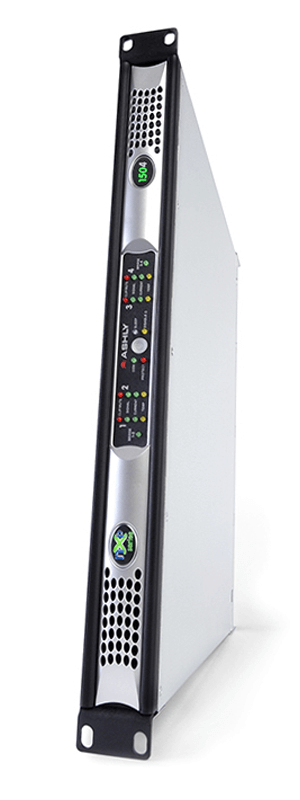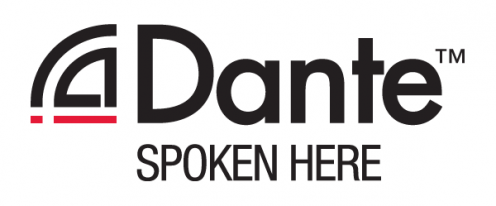Content
This background has given him a foundation of real-life experiences for his freelance writings on business topics. James has written extensively for Bizfluent, SmallBusiness.Chron.com, and Work.Chron.com. He previously had his own firm that specialized in financing exports from the United States to clients in Central and South America. James received a Bachelor of Mechanical Engineering from the Georgia Institute of Technology and an MBA in finance from the Columbia University Graduate School of Business. In 2022, offering client accounting and advisory services is a must.
Becoming a bookkeeper or accountant entails many steps, including education, work experience, and certification or licensure. Some small companies may not have an official bookkeeper, so an accountant will also take on the responsibilities of a bookkeeper too. Or the bookkeeping duties may be assigned to an accountant with less work experience. Being able to generate the standard business reports and statements required by businesses and the IRS. Recommend, implement or manage accounting software for the development of a single or double entry system of accounting. The tax accountant has a specialization in the field of taxation and the regulations that come with business mergers, for instance.
How to Become a Bookkeeper or Accountant
To do this, accountants thoroughly analyze and interpret financial information to create advanced reports on how the business is performing. Nowadays, the availability of bookkeeping and accounting software has made it easy for both bookkeepers and accountants to do their jobs effectively. Data entry, reconciling transactions, payrolling, tax preparation and filing, and other tasks have become easier with technology. The qualifications required to handle comprehensive accounting processes make an accountant a sort of supervisor for bookkeepers.
Even if it seems like a lot, hiring one may be well worth it if they can help you save on taxes, help with business growth. As in, hiring one could give you a solid return on your investment. Outsourcing your bookkeeping or accounting tasks could be a smart idea no matter what size your business is depending on your business needs. We are often asked by business owners if they can do their own bookkeeping rather than outsourcing it. While most business owners can take on this task, especially with the help of bookkeeping software like Quickbooks, this can be very time-consuming, taking you away from growing your business. Instead, more business owners are relying on third-party accounting and bookkeeping firms to keep up with their financial data, save them time, and improve their accuracy. Bookkeeping is the collection, sorting and recording of the financial transactions of a business.
Bookkeeping and accounting are both important
Mid-size and small public accounting firms pay, on average, about 10% less than the Big Four. If you choose to work for a company internally instead of public accounting, the starting salary range is very broad.
How much you make as a first-year accountant depends mainly on the specific career path you pursue. While accounting can be a lucrative long-term career, most accountants, unlike corporate attorneys or investment bankers, do not command huge salaries during the first few years. As a bookkeeper, your attention to detail must be almost preternatural. Careless mistakes that seem inconsequential at the time can lead to bigger, costlier, more time-consuming problems down the road.
Importance of Accounting
Ask for referrals from friends, colleagues or your local chamber of commerce, or search online social networks like LinkedIn for bookkeepers. Accountants generally must have a degree in accounting or finance to earn the title. A bookkeeper with professional certification shows they are committed to the trade, possess the skills and expertise required, and are willing to continue learning new methods and techniques.
- It may take some background research to find a suitable bookkeeper because, unlike accountants, they are not required to hold a professional certification.
- This task usually happens on a monthly basis and ensures that recorded transactions match what’s in that month’s bank statement.
- All sales and purchases made by your business need to be recorded in the ledger, and certain items need supporting documents.
- There are no formal educational requirements to become a bookkeeper, but they must be knowledgeable about financial topics and accounting terms and strive for accuracy.
- You can easily answer questions concerning your income, expenses, losses, and taxes without beating about the bush.
- Bookkeeping generates the financial information that accounting consolidates, reorganizes, and investigates.
So, when it’s time to file your tax, you will stay cool, calm, and collected. However, both processes are different and have their unique position in businesses. Whether you choose a bookkeeper or accountant, give them the cloud. So just in case of accidental loss or deletion, our accounting cloud solutions regularly Bookkeeping & Accounting Differences back up everything housed in your cloud, nightly. Additionally, data is encrypted at the highest levels so that even if a breach were to occur, your data and information stay unreadable. However, if you need insight and advice on how to better operate your business at scale…you will need help from an accountant.
Accountant Duties
In addition to CPA credentials, other common accounting designations are chartered financial analyst and certified internal auditor . To earn the certified public bookkeeper license, bookkeepers must have 2,000 hours of work experience, pass an exam, and sign a code of conduct. They must take 24 hours of continuing education each year to maintain their license. Bookkeepers aren’t required to be certified to handle the books for their customers or employer, but licensing is available.
If you’re considering hiring someone to fulfill one function or the other for your business, you need to be able to distinguish the two. Choose an area of specialization such as auditing, public accounting, or taxes. Startups that seek angel investors need assistance from professional accountants. They will help them to prove to these investors that their money will be properly utilized. Apart from not paying your taxes in full, if you’re receiving large amounts of money as a tax refund, it means your calculations are faulty. From the balance sheet, you can see how much money your debtors have paid and the outstanding amount.
With bookkeepers, there are a lot of minutiae involved, and keen attention to detail is paramount. Meanwhile, accountants tend to use the bookkeeper’s inputs to create financial statements and periodically review and analyze the financial information recorded by bookkeepers. We believe that Bookkeeping and accounting is a very important part of every business.
What is the Difference Between Bookkeeping Vs. Accounting?
In fact, there is a prerequisite of completing at least 150 hours of higher education before a professional can become a certified public accountant . This amount of education is more than what is typically required for a bachelor’s degree. Therefore, earning a Master of Accountancy may make the most sense for accountants who hope to accelerate their career advancement. Accounting is the process by where a company’s financials are recorded, summarized, analyzed, consulted and reported on. Bookkeeping is the recording part of this process, in which all of the financial transactions of the business are entered into a database. The process of Bookkeeping is carried out by bookkeepers who are responsible for recording all transactions. This includes recording cash receipts, cash payments, bank transactions, etc.
Bookkeeping focuses on the proper recording of financial transactions for your business. Usually, your bookkeeper would use double-entry accounting to record all your financial transactions. Double-entry accounting means that for every debit entry you make, a corresponding credit entry must be made. Though bookkeeping and accounting are two terms frequently used interchangeably, they are different.
The Difference Between Bookkeeping and Accounting Careers
Bookkeeping and accounting are two critical aspects of business operations in any industry. Both of these roles help business owners and https://quickbooks-payroll.org/ CEOs keep track of expenses, make informed business decisions, and potentially avoid serious issues such as fraud and embezzlement.
- Such an accountant will have to make bookkeepers classifications and transaction recording processes to begin the accounting procedures.
- Accounting is a more specialized field than bookkeeping and usually requires a college degree.
- A key part of the accounting process is analyzing financial reports to help you make business decisions.
- The distinctions between accounting and bookkeeping are subtle yet essential when considering a career in either field.
- Flatworld Solutions has been in this domain for over 18 years now and has served several clients across the world.
- In addition to CPA credentials, other common accounting designations are chartered financial analyst and certified internal auditor .
One reason why many people believe bookkeeping and accounting are the same things is that sometimes an accountant’s job overlaps with the bookkeeper’s job. The bookkeeper is the one who enters the transaction but the accountant is the one who analyzes that information with accounting principles. You can become a bookkeeper right out of high school if you prove you are good with numbers and have strong attention to detail. In fact, many aspiring accountants work as bookkeepers to get a foot in the door while still in school.
between accounting and bookkeeping into 10 basic categories:
While these services come at a cost, they can maximize the accuracy and efficiency of vital financial management processes. Your business’s accounting needs might not require the in-depth expertise of a hired professional. You might also be watching your company’s list of expenses and wondering where to reduce spending. In either case, consider handling the accounting yourself or delegating this responsibility to one or a few of your current employees. A CIA is an accountant who has been certified in conducting internal audits. To receive this certification, an accountant must pass the required exams and have two years of professional experience.
And if you don’t have an accountant, we can handle your tax filing too. In this guide, we’ll explain the functional differences between accounting and bookkeeping, as well as the differences between the roles of bookkeepers and accountants. An objective and independent Financial Professional can offer sound advice on how to best proceed to fulfill the business goals you set forth.
Medicare Providers
Your accountant or accounting software records it as accounts receivable, and it reflects on the balance sheet. Accounting is the process of keeping financials for a company by recording, summarizing, analyzing, consulting and reporting.




 Audio professionals find our software very intuitive—and you will too.
Audio professionals find our software very intuitive—and you will too.
